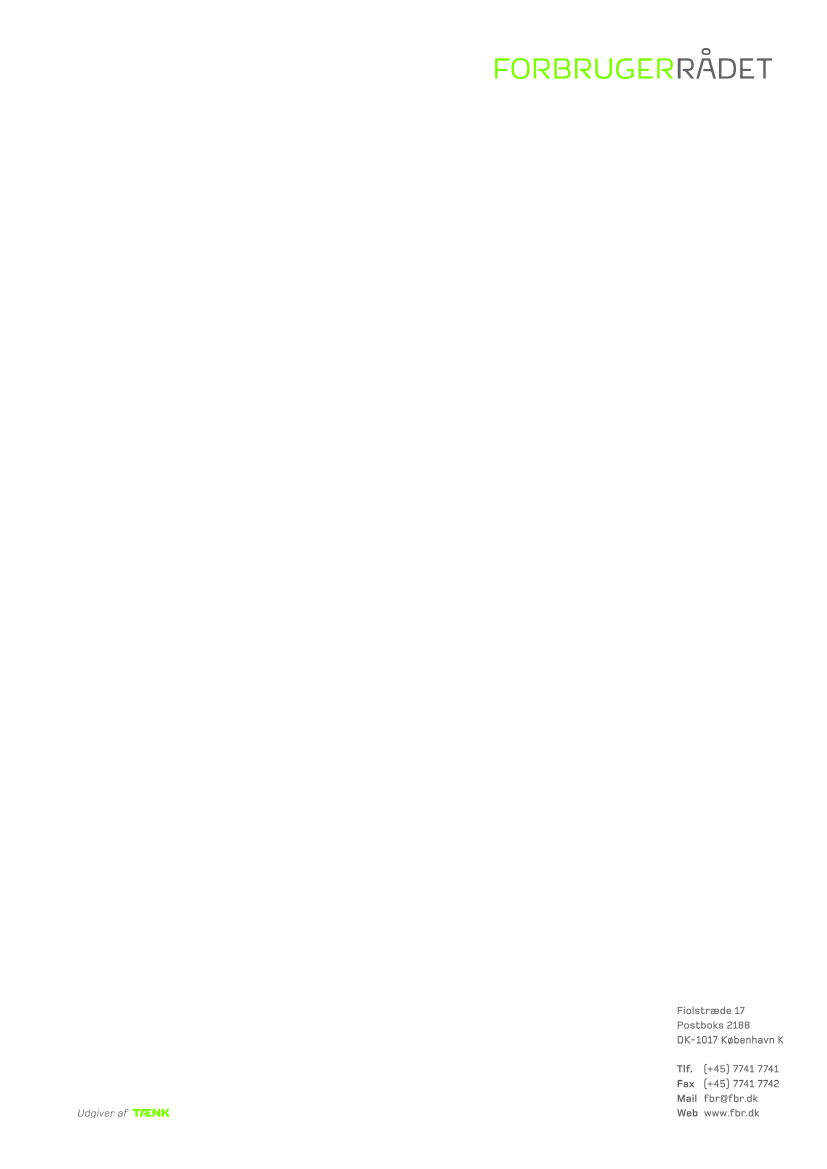Udvalget for Fødevarer, Landbrug og Fiskeri 2009-10
FLF Alm.del Bilag 127
Offentligt
MVTUUniv og BygningsstyrelsenAtt: Jacob FuchsDok. 76072/rk
11-03-2009Evaluation of DNF /The National Food Forum)
Thank you for the opportunity to express our views about the merit of the DNF.The views expressed below are based on the experiences of the Danish ConsumerCouncils two representatives (Ulla Marie Mortensen and Rasmus Kjeldahl) duringthe meetings since the start of DNF. We have participated in most meetings witheither one both representatives. Rasmus Kjeldahl was also involved in the processleading up to the creation of DNF in 2006 and is currently member of severaladvisory bodies related to foodscience and universitiesFirst we would like to express our satisfaction with the choice of Chairman for thisdifficult task. Leo Larsen has done an excellent job in relation to starting up DNFand identifying meaningful issues to deal with.We think that a positive impact of DNF is to provide the Ministry with informationabout the development of the involved universities following the reform and theconcerns of some of the other organizations represented in DNF.Despite this and the much appreciated efforts by the chairman we continue,nevertheless, to be unsure about the wisdom of the 2006 reform and the valueadded of the DNF. It remains a fundamental problem that DNF have no realdecision power over the participating universities and we also remains very muchin doubt about it efficiency in relation to ensure real coordination. Typically theuniversities are rather reluctant to put issues on the agenda or to submit themselvesto any kind of coordination form DNF. This is unsurprising given the independentstatus of universities following the reform. In fact we have the impression thatcertain initiatives are actually deliberately kept away from DNF to avoid thatcompeting universities gets an advantage from gaining insight.If we look at the task description for DNF we find that only a limited number oftask has actually addressed to any significant extent, and even when addressed it isunclear if this have had any real effects. It seems to us that most time have beenspend onRecruitment of students and the destiny of these students during and afterstudies1/2
Discussions on the relationship between the authorities and the formersector research institutes now part of the universities.Organization of the yearly debate meetingIssues related to EU research programs
These issues –not least those related to education - are certainly very important butso are many of the other issues on the task list that have not been dealt with. In ourfield of interest we note the quasi-absence of discussions related to consumerneeds, such as the Universities new role in relation to advising the authorities in thefield of nutrion, food safety and risk assessment and management. We are ready torecognize an own responsibility for not putting many such issues on the agenda –the reason is however that we do not really see what DNF should be able to do inrelation to the university activity in that area. We remain for that reason in doubtabout the merits of our participation in the forum as an organization and regretsthat the reform in 2006 have excluded us from some fora where we used to have amore direct influence on the consumer relevant activities of the sectoral researchinstitutions including National Food Institute and the National Veterinary Institute.To conclude, we find that DNF has had a rather limited impact – and we are notsurprised given its status and the distribution of comptences among its members.We also believe that some of the positive effects of DNF may be more efficientlyachieved through alternative coordinating mechanism. Finally we think that thereform have decreased real consumer involvements in key areas of interest and wewould like to see this problem reflected in the recommendations of the evalutionpanel.
Rasmus Kjeldahl
Ulla Maria Mortensen
2/2


